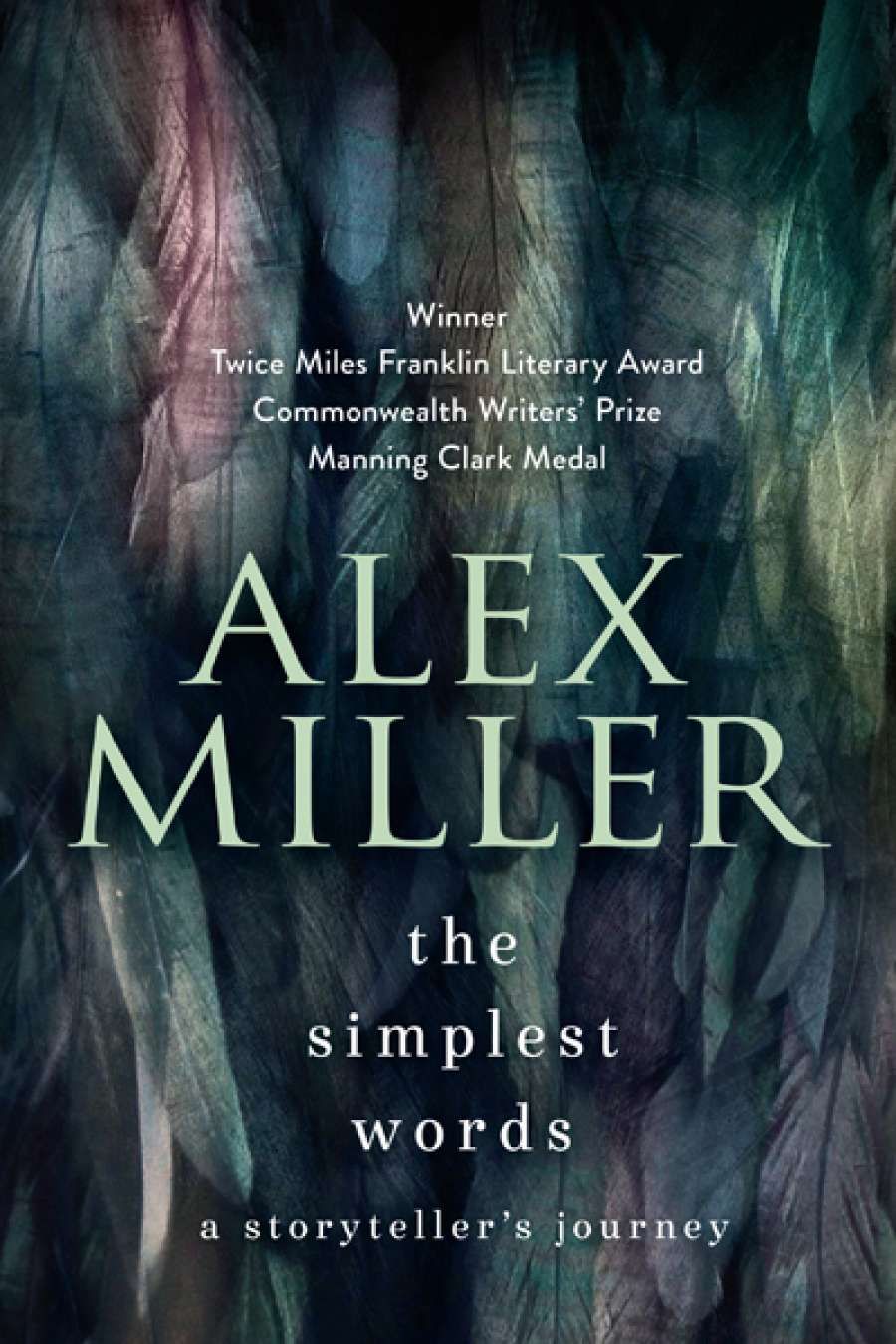
- Free Article: No
- Contents Category: Literary Studies
- Custom Article Title: Brenda Walker reviews 'The Simplest Words' by Alex Miller
- Book 1 Title: The Simplest Words
- Book 1 Subtitle: A Storyteller’s Journey
- Book 1 Biblio: Allen & Unwin, $35 hb, 368 pp, 9781743313572
Miller's fiction was first published in Meanjin in 1975, but he was writing, and observing his life with the precision of a writer, long before that. He describes an event from childhood that marks his early connection with literature. As a child he asked, with 'religious' fervour, for a pair of roller skates – an exorbitant gift in a household with limited finances. His parents managed to buy them because his brother and sisters agreed to do without their own Christmas presents. With the aid of the skates he was 'flying along the footpaths' into wealthy London suburbs, where he bailed up a privileged schoolboy who was carrying a book. The nine-year-old Miller exchanged his skates for the book. His family, generously, approved of the swap. Miller is ironic about the usual 'destiny story' of writers: 'when they were six, or even three, they found a book like Stendhal's La Chartreuse de Parme under Mum's bed and taught themselves to read it in French in a week ... Writers' festival committees love these stories and encourage us to tell them. Every true writer must have one.' This skating story is presented as Miller's. Wonderfully, Miller exchanged his skates, not for Stendhal, but for the Billy Bunter Omnibus. It is a great story, not one about a pretentious sense of writerly destiny, but a story of flight, exchanged, ultimately, for literature.
The Simplest Words is a documentation of the act of writing, the cultural significance of literature, and the future of the novel form. Writing is 'hard work', according to Miller, but the hiatus between books is much harder. 'Writing is a joy. When I'm not writing I feel unplugged. Powerless. Disconnected from myself.' Although he values the personal consolidation that writing can confer, the novel reaches beyond the personal. He asserts that it is a profoundly ethical form and the imagination a 'moral force' with the capacity to awaken not just individual memories, but cultural memories that have regressed into silence and denial, such as genocide and massacre.
 Alex Miller (photograph by John Tsiavis)
Alex Miller (photograph by John Tsiavis)
Miller's novels originate in close friendships and affinities that are identifiable sources of support and inspiration. These are often described, in The Simplest Words, as friendships of love and trust. His searchingly political novels – The Ancestor Game, Journey to the Stone Country, Landscape of Farewell and Coal Creek – germinated in this way. In his descriptions of these friendships, Miller captures the expansive gift of loving affinity. It is a rich subject. In particular, his indigenous friends – Col McLennan, Frank Budby, and Anita Heiss – moved him to write his novels about indigenous experience. 'We do nothing alone,' he writes, describing how Col McLennan 'told' him to write Journey to the Stone Country in the same way that Stephanie Miller 'told' him to write The Ancestor Game. Just as the people he deeply cares for urged him to write, his books encourage us to think about art, ideas, and dispossession. He writes that he 'believe[s] in the moral force of the human imagination', and this, along with the inspiration of friendship and connection, has brought his work into being.
The Simplest Words contains a fine consideration of what the novel might be, and what it might become. Miller suggests that Kim Scott and Alexis Wright are the most significantly transformative Australian novelists at work today, in that they 'radically reinscribed not only the cultural sources of the Australian novel's energies but its form in a way that no non-Aboriginal novelist has done, except possibly Patrick White'. Given that White's Voss occupies the upper levels of Miller's own bookshelves, this is very high praise.
Most collections of this kind are interesting and useful reminders of the value of a writer of considerable literary standing. The Simplest Words is more powerful than that, because of Miller's intense engagement with his subjects, and because Stephanie Miller has chosen pieces that speak to one another, accounting, in a way, for one of our most original, engagingly vehement, and expansive writers.


Comments powered by CComment